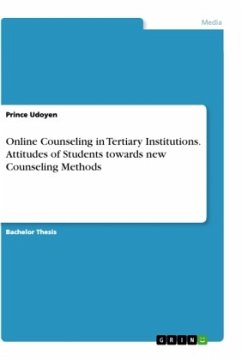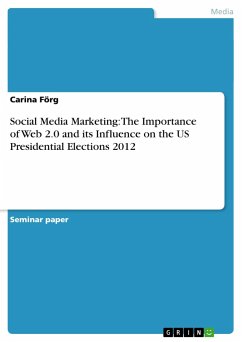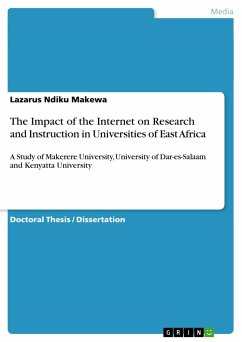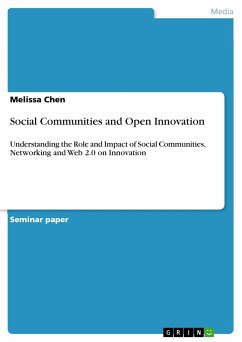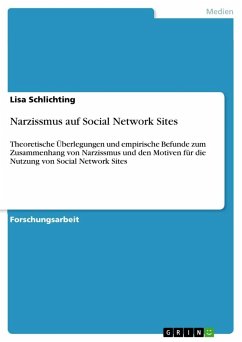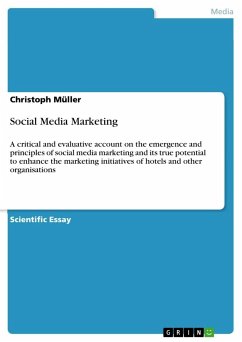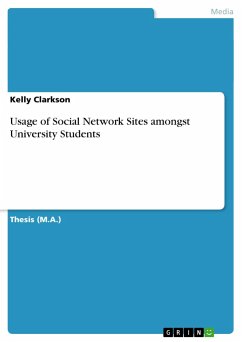
Usage of Social Network Sites amongst University Students

PAYBACK Punkte
0 °P sammeln!
Thesis (M.A.) from the year 2012 in the subject Communications - Multimedia, Internet, New Technologies, grade: A, The University of Liverpool, course: Information Management, language: English, abstract: Social network sites have millions of users worldwide with the sites integrated into the daily practices of the users with increasing numbers recorded among university students. Examples of popular social network sites used commonly by university students include Facebook, Bebo, MySpace, Cyworld and many others. The largest of the sites among university students being Facebook created in 2004...
Thesis (M.A.) from the year 2012 in the subject Communications - Multimedia, Internet, New Technologies, grade: A, The University of Liverpool, course: Information Management, language: English, abstract: Social network sites have millions of users worldwide with the sites integrated into the daily practices of the users with increasing numbers recorded among university students. Examples of popular social network sites used commonly by university students include Facebook, Bebo, MySpace, Cyworld and many others. The largest of the sites among university students being Facebook created in 2004 by Zuckerberg with its rate of usage at 90% (Stutzman, 2006). In addition, Facebook has stimulated a platform for a lot researches on its various aspects for instance in academics (Hewitt & Forte, 2006). Furthermore the growth of social network sites on schools can be attributed to the growth The intense usage of social network sites within academic institutions has resulted into social capital formation and on the other hand resulted to new platforms of effective communication. In addition, the social network sites are also associated with social capital measures for instance bonding and bridging of social capital. Furthermore, self esteem moderates the relationship between social capital and social network sites. Individuals who have low self esteem tend to gain confidence from using social network sites as compared with their counterparts who have high self-esteem. This aspect acts as a psychological boost to individuals specifically students who are introverts and can act as an academic boost for them.Studies conducted earlier on social network sites had data being collected at one-point-in-time thus making it difficult to determine a time order in relationships among users of the social network sites, social capital and self esteem. The growth of social network sites was not phenomenal and popular and thus the underlying reasons which attracted different segments could not be identified. The reports indicated that studies on impacts of SNSs among heavy users like university students need to be conducted since friendship maintenance using social network sites play a significant role in individual psychological development of students. The age group 18 to 25 represents the period between adulthood and adolescence according to Arnett (2000). This stage, as argued by Arnett, is vital to an individual adulthood development since during this period when a person develops social skills like for career orientation, relationship maintenance and self dependency.





